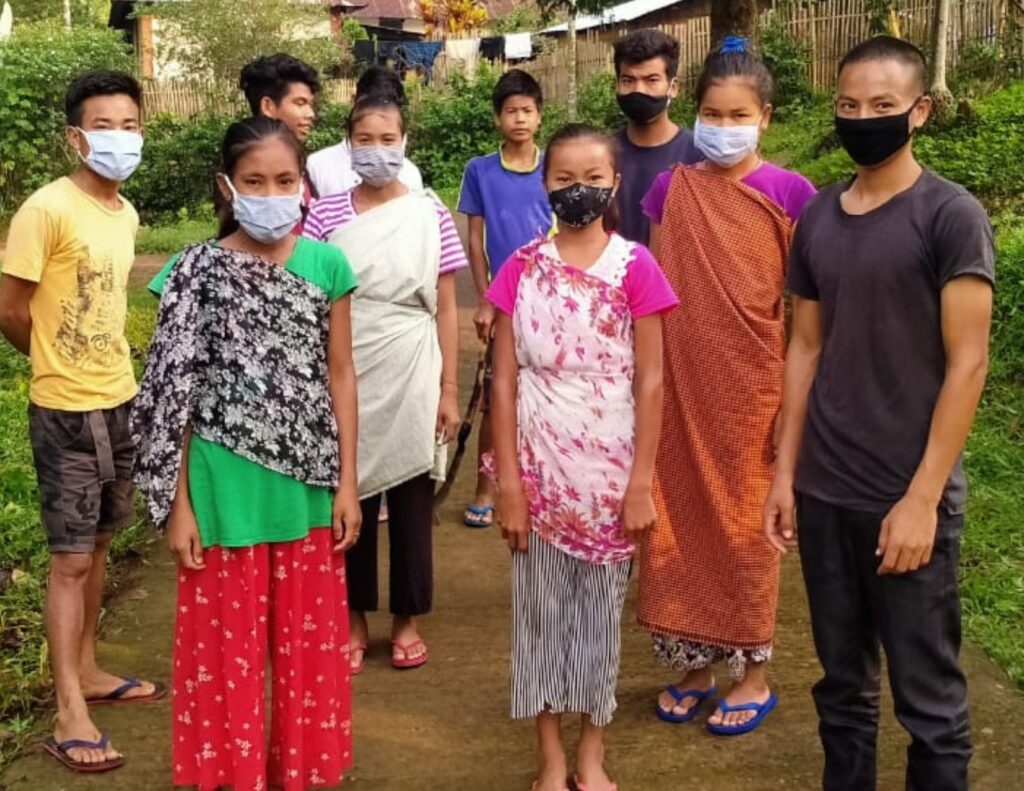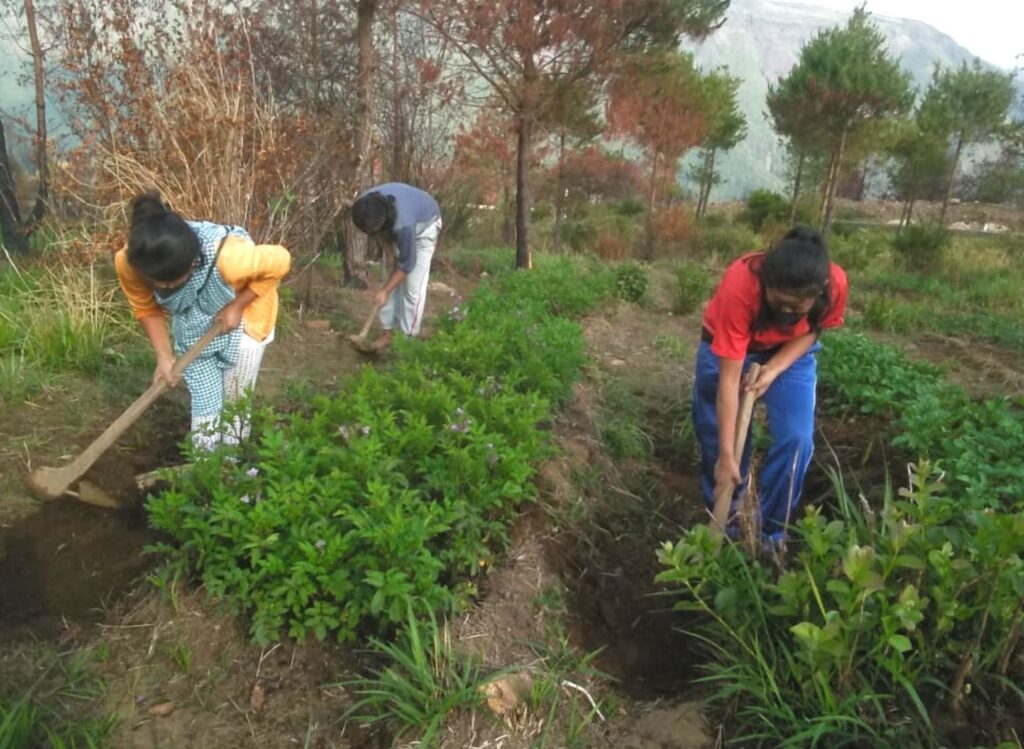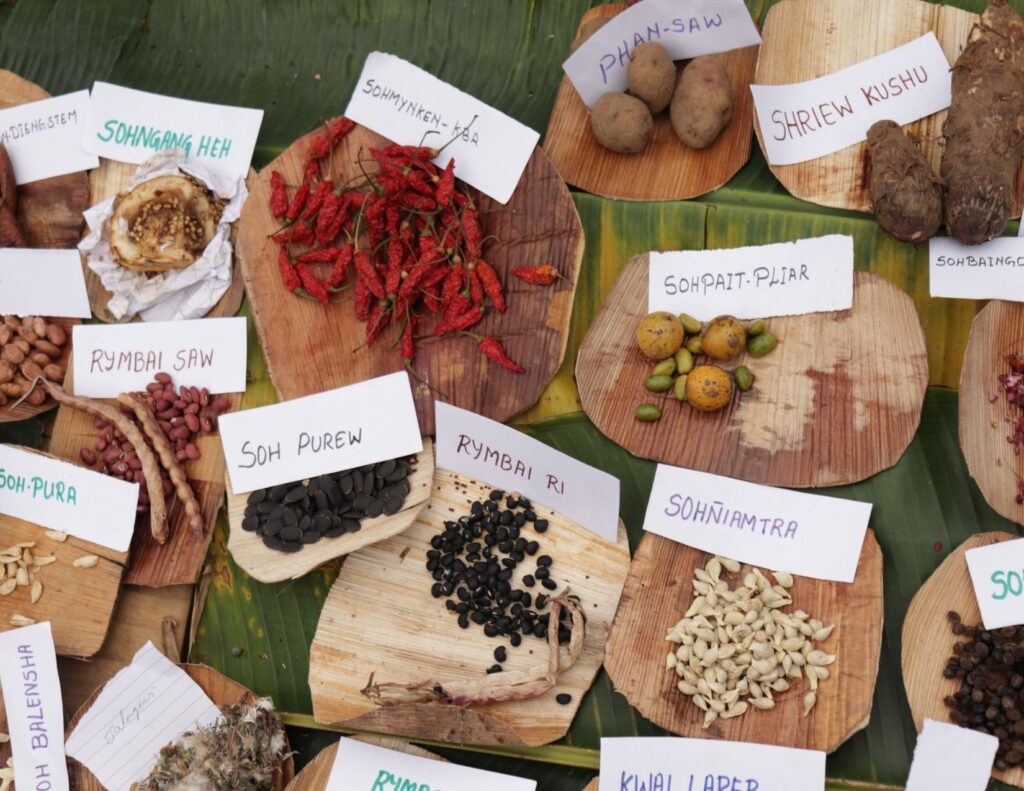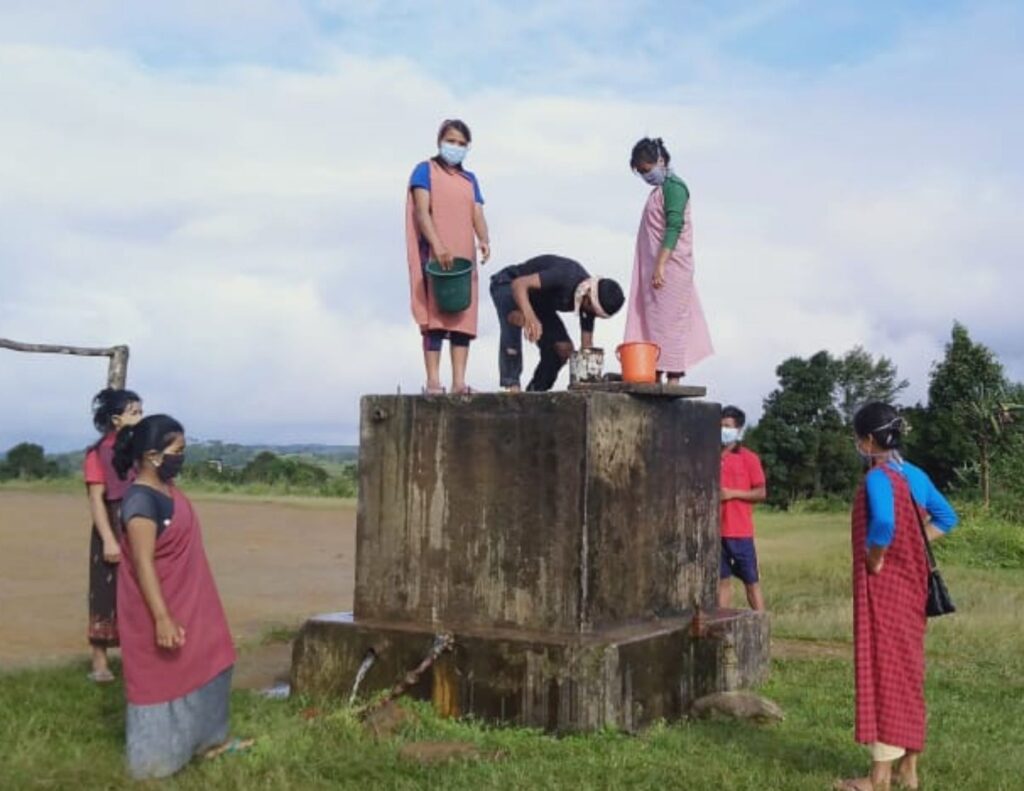NESFAS’ “No one shall be left behind” initiative supported by REC (Rural Electrical Corporation Ltd) Foundation kick-started in July 2018. The initiative aimed to enhance Indigenous Food Systems (IFS) that would significantly contribute to improved nutrition, food security, and sustainable livelihoods among 130 indigenous communities of Meghalaya and Nagaland.
Among the many campaigns under this project was the Youth for IFS which was put to place identifying the huge role youths play in safeguarding and sustaining IFS. The last three years have seen NESFAS’ work with youths from all partner villages to restore, regenerate and build the resilience of local actions for food sovereignty and security.
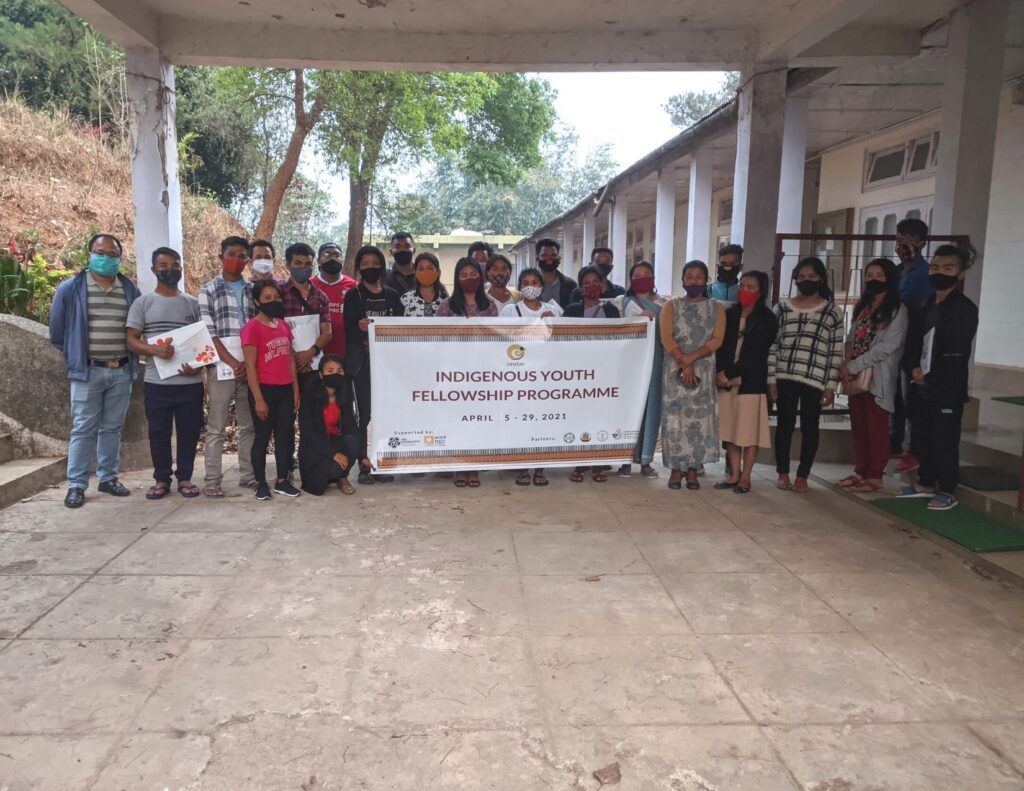
NESFAS Initiated the Indigenous Youth Fellowship programme to defend local Food Systems in April 2021
“We often see young people show little or no interest at all in the participation of food systems. Therefore, as an organization we have tried to introduce a number of innovative ideas to make them understand the significance of IFS.” shared Bah Pius Ranee, Executive Director of NESFAS, talking about the initiative.
Today, August 12, 2021, in commemoration of the UN’s International Youth Day event, we take a look at the initiatives undertaken and the progress that have been made under the Youth for IFS initiative.
Training, Fellowship, and Actions on IFS
Surrounded by riches, many indigenous communities often take much of their rich food system and biodiversity for granted. As such, training programs centred on highlighting the importance of safeguarding the IFS, especially among the youth, is imperative. Campaigns and training on IFS have been organised in the communities with the focus on introducing three chief concepts among the youth. i.e.
- a) Agroecology Learning Circle (ALC)
- b) Food Sovereignty
- c) The Indigenous Food Community Alliance (IFCA)
As recently as April this year, before the unfortunate spike of the second wave of COVID-19 and the consequent lockdown, a month-long Local Youth Fellowship program was conducted for 24 youth from partner villages. The Fellowship was facilitated for the youth to gauge a better understanding of the importance of IFS, biodiversity, and intensifying the existing food crops in their respective villages for food security. Additional skill sets training on leadership and entrepreneurship skills for the youth also made up an important aspect of the program.
Participant youth from the program have gone on to initiate several programmes in their own respective villages. Ladappura Pyngrope, 23, from Mawpynthymmai village shared her experience of valuable knowledge gained on the IFS from all the trainings under NESFAS. She is one of the youth from her community who have gone on to organise awareness programmes on their own on the value of IFS in her village: “As a youth, I have a big responsibility to be a leader and represent the community who will be the defender of local knowledge through IFS practices”, said Ladappura.
Speaking of the IFS initiative and how positively it has impacted the youths Bah Pius expressed his delight in the responsibilities the youths have taken up in their communities: “Now, we can slowly see these young people are becoming true change agents within their own communities in promoting IFS”.
Safeguarding and Passing on Traditional Knowledge
For any traditional knowledge to stay alive, the transmission or passing on of the knowledge from one generation to the other is essential. In this sense, traditional knowledge transmission becomes one of the most crucial elements in safeguarding and strengthening IFS. For the seamless transmission of this knowledge from the older members to the youth, NESFAS, under the IFS initiative, has conducted various training programmes in communities across Meghalaya. One such training held across 5 communities saw youth learn traditional pest management methods from knowledge holders. Youth have also actively participated in composting trainings for producing organic manure.
Many ALC Groups have also been initiated in various communities. In February this year, Laitsohpliah ALC group became one of the latest groups to start their own ALC garden. The ALC garden in Laitsohpliah has been started for the custodian farmers to pass down their knowledge about traditional farming to the youth. With the first harvest from the garden to be kept solely in community seed banks, Ibadahun Nongrum, 22, from Laitsohpliah, expressed her commitment to making this a successful undertaking: “I will try my level best and put efforts to motivate people in the village that they must strongly preserve their local seeds and pass on their knowledge to the youth, generation to generation”.
Youth Stepping up
Kong Merrysha Nongrum, Sr. Associate NESFAS, who has worked closely with the youth as the Coordinator for Youth and Women Empowerment, spoke glowingly of the youth she has worked with over the last three years: “In general, over the past three years, youth have been empowered and encouraged to engage more of their time in food systems activities. It was seen that there are some communities which are into cash cropping for the past 15 -20 years but through youth’s initiatives and their facilitated programmes and actions, community members have realised the importance of defending their IFS as well as for food sovereignty and food security values.”
Many youth have helped set up community gardens for safeguarding the food security of their respective communities. Youth from Nongpriang are also constantly promoting the importance of kitchen gardens for the increase production of food diversity in communities. In December 2020, the Umsawwar Youth Club, in collaboration with NESFAS organised a Community Seed Fair in Umsawwar, East Khasi Hills. The fair highlighted the role youth play in safeguarding the future food security and food sovereignty.
Moreover, as cleanliness and sanitation have become non-negotiable in the context of the world today, youth have taken full responsibility for WASH activities (cleaning drive, personal hygiene, cleaning water sources, etc) in almost all project villages across Meghalaya and Nagaland.
“I would say, COVID-19 pandemic is one of the biggest lessons for the youth and for the community members to reconsider the IFS values and let them understand its significance, with this aspect having had an impact in the community and their mind-set change. Most importantly, youth are willing to educate and impart knowledge of Indigenous Food Systems among others in the community.” Kong Merrysha added.
NESFAS representations in UN International Youth Day Events
As part of the celebrations for UN International Youth Day, the Meghalaya Model United Nations Secretariat organised a panel discussion on August 12, 2021, under this year’s theme: “Transforming Food Systems: Youth Innovation for Human and Planetary Health.” Kong Gratia Dkhar, Lead Associate, Agroecology and Trainings of NESFAS, represented the organisation in the aforementioned webinar panel discussion.
Mr Janak Preet Singh, Sr Associate, Livelihoods, NESFAS also presented NESFAS’ work on the IFS of Meghalaya as a speaker in an online webinar held on August 12, 2021, on Food Cultures Across the Indian Himalayan Region organised by the youth of Darjeeling Himalaya Initiative under the aegis of Integrated Mountain Initiative on International Youth Day.
 Translate
Translate
